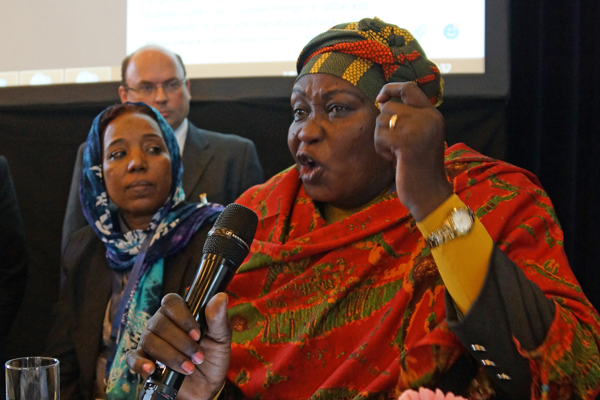On International Women’s Day 2018 There’s No Time to Look Back
Posted on: March 8, 2018, by : Editor
On the one day the world sets aside for women, I do not feel like celebrating. How can I when it is women and girls who continue to suffer disproportionately in crisis and conflict?
Bombs smash into the homes and families of Ghouta, leaving women to pick up the pieces. The livestock of Somali nomads die in drought, and the women in must walk even further for water a drop of water, thanks to climate change caused by people far away from them. A man accused of sexual assault by 20 women sits in the White House.
How can I say with a straight face “happy women’s day”?
Women still face this humiliation, discrimination and violence, yet are denied entry into the forums that could change their circumstances. Across the world, under a quarter of parliamentarians are women. Of the 15 ambassadors sitting on the UN Security Council, just two are women.
How are we meant to end the institutional challenges we face when we are denied entry to the halls of power?
Women leading movements should be leading governments
Perhaps I am not surprised that women continue to be excluded from these forums. The past year has shown the kind of transformative change that women can achieve, even while they are still drastically underrepresented politically. In a matter of months, the #MeToo movement spurred a backlash against sexual harassment that saw leading politicians resign in disgrace, and celebrated faces of film and television turned overnight into pariahs.
#MeToo was like a revolution, its arrival seemed to surprise many, but in hindsight it was inevitable. Of course it was unsustainable that half of the population did not have the platform to challenge the foul comments, unwanted advances, groping, exposure, and worse they faced on a daily basis. Of course. And yet we had to wait until 2017 to be able to call out our tormentors.
Like a revolution, the change brought by #MeToo did not simply happen. It took the courage, the tenacity, the dedication of women campaigners to force the issue. Across the world, we see similar women – as groups, as individuals, as movements – striving to force change that seems impossible, until women make it inevitable.
#MeToo shows how systems of oppression can be challenged through women’s activism. This seems especially significant when you consider how women are excluded from or marginalized in international mechanisms for peace.
In his recent valedictory speech, the UN human rights chief Zeid Ra’ad Al Hussein spoke with passion about the state of global peace. Surveying the violence and human rights abuses of the world, he suggested we might be mad. With the clarity afforded only to outgoing officials, he spoke of the failings of the Security Council, and the need for reform. Zeid is right. The veto power of the five permanent members is putting politics over peace, it ignores and excuses the violence led or condoned by the global powers.
It is not a coincidence that a forum like the Security Council that so successfully excludes women and women’s civil society should be so broken, so incapable of bringing peace to Syria, to Yemen, to the world.
#MeToo, a time to say “enough”
Imagine if the women who said me too, or the women activists who forced an end to discriminatory laws in Lebanon, Jordan and Tunisia, were able to participate in diplomatic and peace processes. These are true leaders, people who have taken it upon themselves to challenge and end inequality and injustice. Like Ambassador Zeid, they saw the madness in which we lived, and they said “enough”. Their example – of changing inequities that seemed intractable – is one that governments and international institutions must learn from.
That women are still able to bring change despite all the barriers they face is something worth lauding. We might allow ourselves a moment to reflect, but the appropriate way to celebrate is to continue the fight, to support the activists, to join the movements. International Women’s Day is not yet a time to look back. While I can still hear the cries of women and children in Ghouta, Somalia, Yemen, and so many more struggles, there remains so much in front of us to change.
